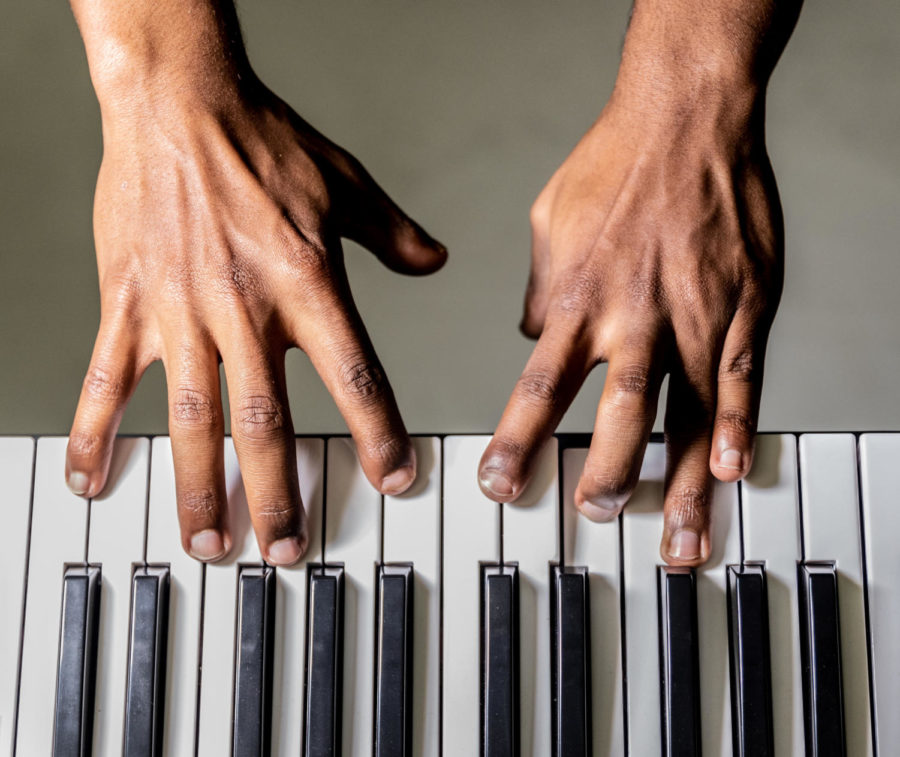Why instruments makes a difference
The cultural, personal, and societal benefits of music
Photo by Allyson Arnold
People play instruments in order to express themselves. Music can be created by anyone for a million different reasons.
January 11, 2023
For as long as my memory serves, the note of a piano was a soliloquy in itself, regardless of whatever musical piece it was presented in. I had always desired to learn the facets of the piano, and in mid-November of 2022, I began on the journey.
As I began this venture, I recognized that music has long been an integral part of human culture, with evidence of musical instruments dating back tens of thousands of years. Even the earliest of people appreciated the simple beats that they could produce. Yet in its essence, music is beneficial to people, cultures and society as a whole.
For me, music provides a sense of emotional connection and expression. When I begin to play a melody, I feel as if the composition is my only focus. It serves as a way for me to comprehend my feelings and also provides a sense of comfort and solace.
Simply listening to music is a form of self-care, helping to reduce stress and improve mood. In fact, research has shown that listening to music can have a number of physical and mental health benefits, such as lowering blood pressure, reducing anxiety and improving cognitive function.
In different cultures, music can play a crucial role in bringing people together and fostering a sense of community. The distinct sound of music ranging from classic Latin Cumbia to the decisive bellows of Carnatic Hindi music unites individuals. It truly transcends language barriers and connects people from different backgrounds and cultures.
Music festivals and concerts can be powerful social events that bring people together to share in the experience of live music. Music is often cited as a means of cultural preservation, helping to pass on traditions and stories from one generation to the next.
In a societal context, music can also have a number of benefits. It often serves as a means of education, teaching people about different cultures, histories and experiences. Music can be a powerful form of social activism, with many artists using their music to raise awareness about important issues and inspire change.
Musicians such as Kendrick Lamar and John Lennon, who were pillars of the music world in their eras, have used their platforms to speak out against injustice and inequality, and their music has played a crucial role in shaping social and political movements.
The benefits of music are numerous and varied. It can provide personal comfort and emotional expression, foster a sense of community and cultural connection and serve as a form of education and social activism in the Black lives matter and Anti-war movements respectively.
As such, the cultural, personal and societal benefits of music are undeniable and worth celebrating. In today’s fast-paced and often stressful world, something as trivial as the notes on my keyboard can bring people together and provide solace and inspiration.
















